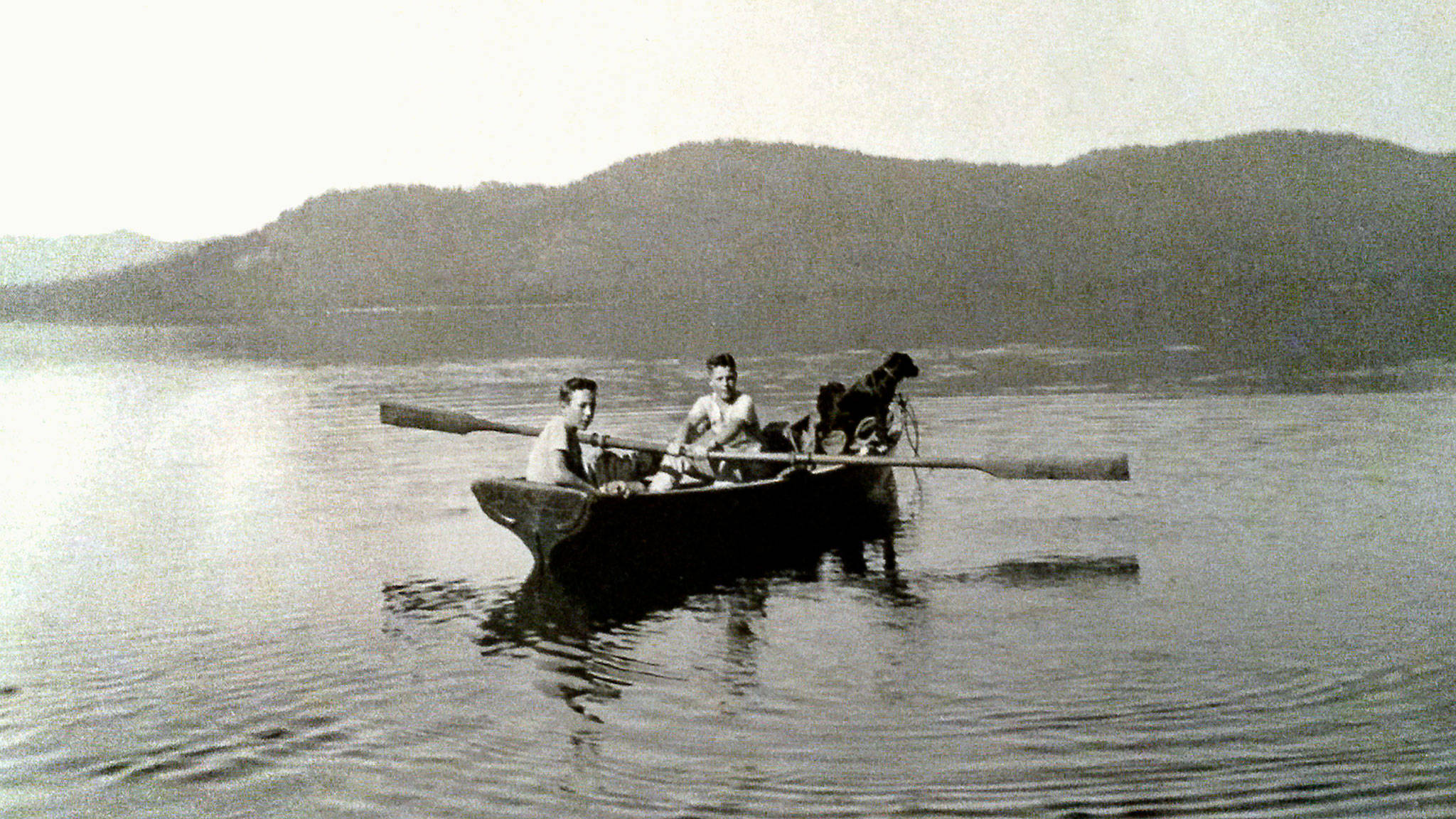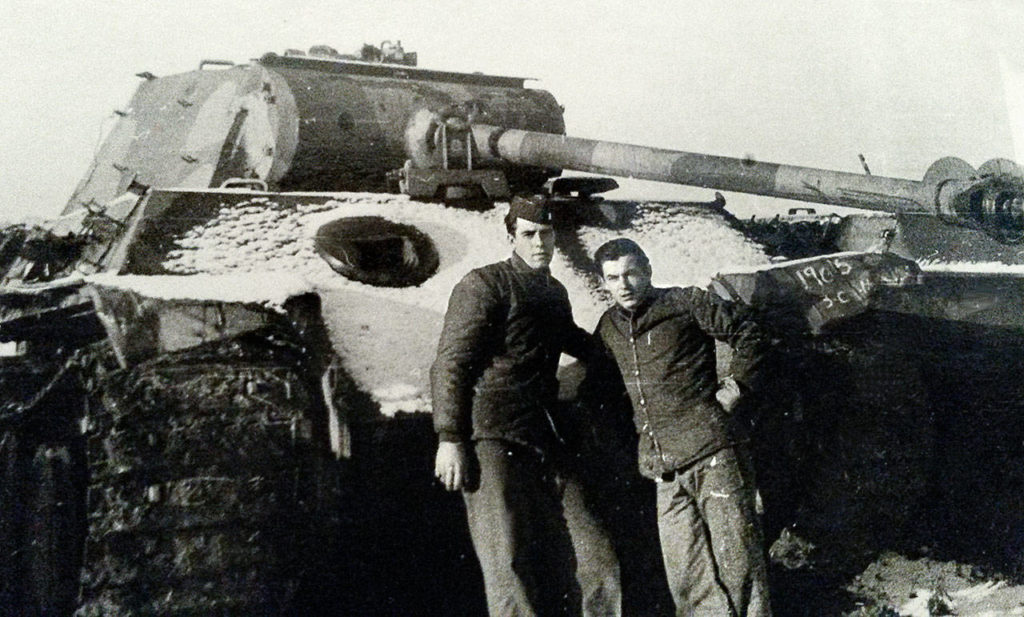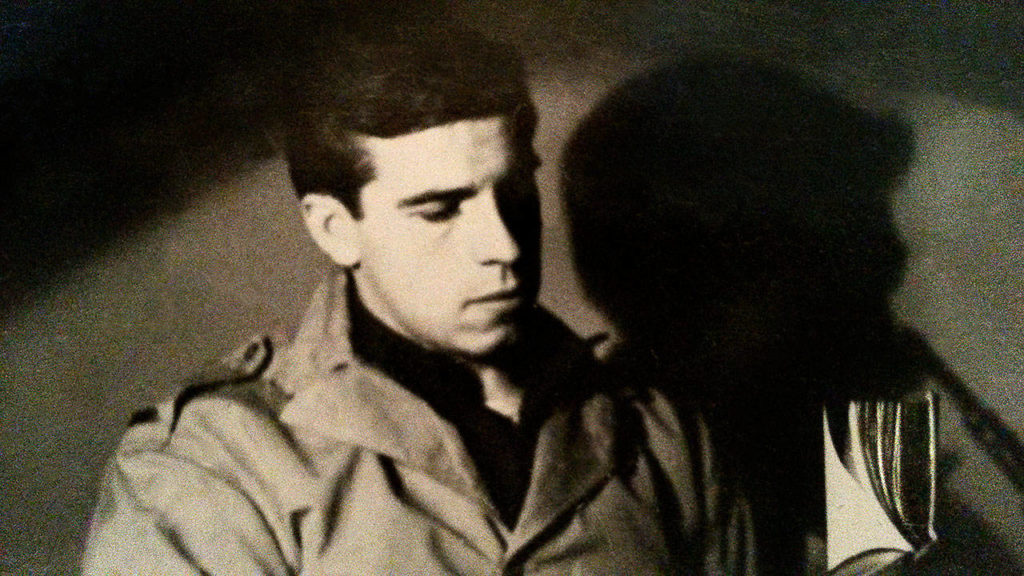We’ll remember this snowy February long after it all melts. Yet weather won’t be the winter’s most lasting memory for me.
My January vacation, a week spent staying with my dad in Spokane, is what I’ll never forget. It’s been years since I enjoyed a significant stretch of one-on-one time and conversation with my father.
I was surprised at how many stories I’d never heard. He shared memories of his boyhood in Reardan, a town west of Spokane in Lincoln County, and of summers spent with a favorite uncle at Priest Lake, Idaho. My dad’s only son and one grandson are named after that Uncle Bill.
As much as I already knew about my father’s World War II service — he landed at Normandy 17 days after D-Day and was part of the Army’s 42nd Infantry “Rainbow” Division — I hadn’t seen his pictures from Germany.
One icy afternoon, I asked to see a photo album tucked in the bottom drawer of the desk in his den. That big maple desk had been off-limits during my childhood.
Sure, he said.
I turned the pages of that album. The black-and-white pictures triggered memory after memory for my father.
There he was, a boy on a wintry day wearing snow goggles and lace-up boots. There he was, with fraternity brothers wearing jackets and ties, outside the Phi Delta Theta house at the University of Idaho.
There he was, a handsome young officer at a formally set dinner table with three other uniformed men. Asked, “Where was that, Dad?” he said it was someone’s home in Germany. My father was in Europe until 1946 as part of the U.S. Army’s postwar occupation of Germany.
The album also has images of a German tank, of grounded planes emblazoned with Nazi Germany’s Iron Cross, and of bombed-out buildings. He couldn’t recall whether one scene of rubble was from Munich or Nuremberg.
Vacation isn’t the right word for my week in Spokane. It was more like time travel — into the long-ago life of my father.
Oh, and happy birthday, Dad.
My father, Richard Ahrens, turned 96 Tuesday at his Spokane home. Minus about five years split between college in Idaho and Europe during the war, he has survived 90-plus Eastern Washington winters, mostly without complaint and certainly without dented fenders.
My visit was scheduled because my sister, a retired Spokane teacher, was really the one away on vacation. She and her husband were in Hawaii for two weeks. An ever-faithful daughter and fabulous cook, she lives a few blocks from my parents’ house. She visits daily, bringing meals to Dad and doing errands for our mom.
At 97, having recovered from a serious fall, my mother lives in an assisted living apartment near their home. My dad visits nearly every day. And yes, he still drives.
I spent the first week of my sister’s vacation at Dad’s house. My brother came from his home in Idaho for the second week — and got our dad hooked on jigsaw puzzles.
There was one picture I couldn’t leave in the album. I asked to borrow it to make a large copy. Again, he said sure.
It’s not my father in uniform. It’s not a city ravaged by war. Rather than a photo for the history books, this is one for my heart.
In this picture, two boys and a black dog are in a dory-style rowboat. My dad is holding long oars, which are outstretched parallel to the water. Half-circle ripples from those oars are visible on the calm surface of 1930s Priest Lake.
It’s a place I have always loved. I can’t begin to count how many times I’ve gone swimming, canoeing or walking along the beaches at Priest Lake.
Looking at his so-much-younger self, my dad identified the other boy in the boat. He was my dad’s second cousin, Norman Cross — a name I didn’t recall ever hearing. Norman’s grandparents had a place at Coolin, on the lake’s south shore. It was near where my dad’s Uncle Bill Ahrens lived.
One time, my father said, he and Norman rowed 19 miles to the lake’s north end. It took them days. They didn’t row back, he said. Someone got worried, found them and towed their boat back to Coolin. No one is wearing a life jacket in that picture.
Home now, and with Spokane in for more snow, my sister tells me she’s missing Maui.
Mine was in some ways a working vacation. I grocery shopped, made meals, and took my mom out for scenic drives on icy streets. We went to Manito Park to watch kids on the sledding hill.
What a time it was — time enough to ask questions and get some answers. Tropical travel could never compare.
Talk to us
> Give us your news tips.
> Send us a letter to the editor.
> More Herald contact information.































